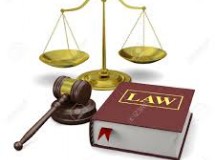- 1). Request a copy of your credit history from each of the three major credit bureaus. Experian, Equifax and Trans Union all keep separate records and will tell you what is on your consumer report. You are allowed to request one free copy from each agency one time per calendar year.
- 2). Conduct a background check through an online records company. Companies such as U.S. Search gather records from both consumer and criminal agencies and compile them by name, and list things such as loans, home ownership, and criminal offenses. You will fill out an online form and pay for the records with a credit or debit card over the Internet.
- 3). Visit your local state patrol office and speak to a records clerk for directions on filling out a state criminal history check. A state examination of your records will locate any contact you’ve had with patrol officers at any location in the state.
- 4). Run a background check on yourself through your city police and county sheriff’s office. Each agency maintains different records and will be able to tell you what violations you have incurred through their particular department. A waiting period of up to 72 hours is normal for a background check, so ask the clerk when you can expect to pick up your results.
- 5). Get copies of dispositions from your local courthouse. While police offices and sheriffs’ departments keep record of violations, they are not mandated to keep track of what happens when cases go to court. The court records office will be able to tell you what you pleaded and what corresponding sentence was imposed.
SHARE








































